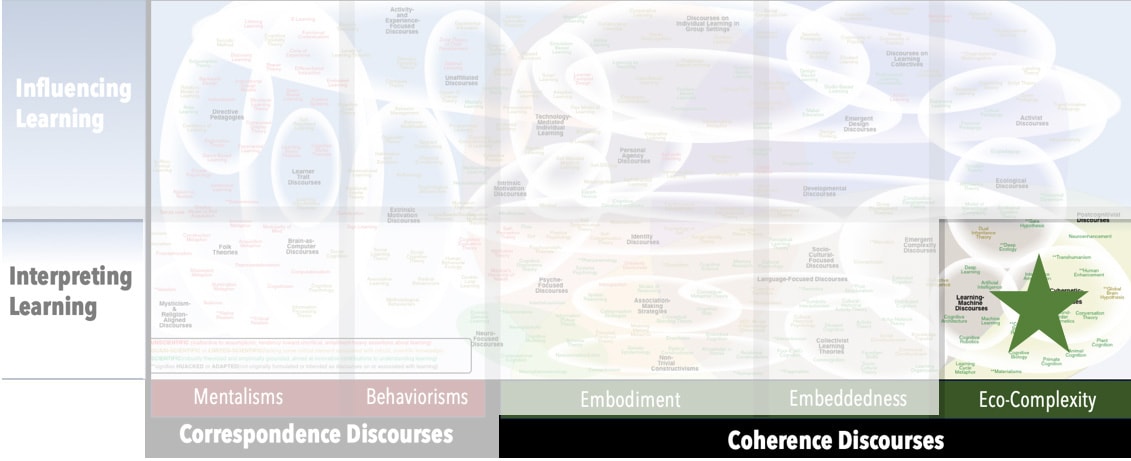AKA
Artificial Cognitive Systems
Cognitive Technology
Developmental Robotics
Epigenetic Robotics
Humanoid Robotics
Neuro-Robotics
Robot Learning
Focus
Robots capable of addressing complex, real-world situationsPrincipal Metaphors
- Knowledge is … space of imaginable possibility
- Knowing is … current repertoire of possibility
- Learner is … a robot (literally)
- Learning is … expanding a repertoire
- Teaching is … challenging
Originated
1990sSynopsis
Cognitive Robotics is an area of Artificial Intelligence and Machine Learning that is concerned with creating robots that are able to learn and reason in order to act effectively in situations involving complex goals and/or problem solving. Cognitive Robotics explicitly rejects strategies based on symbolic representations of the world, based on decades of failed efforts. Rather, taking Animal Cognition as a starting place and without direct programming of solutions, Cognitive Robotics situates ambulatory, sensing robots in the physical world and equips them with strategies to learn to act (e.g., imitating other agents, exploring through pseudo-random movement, interactive sensory-feedback and symbol-processing units) as they work toward meeting assigned goals. Associated discourses include:- Evolutionary Robotics (Karl Sims, Jeffrey Ventrella, 1990s) – a branch of Artificial Intelligence that utilizes principles of Embodied Cognition and Universal Darwinism to create robots that “learn” – that is, robots able to adapt to complex environments and to deal with novel, real-life situations
Commentary
As with Animal Cognition and Plant Cognition, appreciating what Cognitive Robotics is all about requires the rejection of many commonsense dualisms (e.g., thought/action, human/nonhuman, animal/machine). Hence, for the most part, criticisms tend to be anchored to a reluctance to jettison one or more of these notions – in spite of some rather stunning successes of Cognitive Robotics. Perhaps its major contribution is the frequent confirmation of a foundational principle of Embodiment Discourses – namely that, when it comes to effective action in the real world, there is no need posit or rely on internal representations.Authors and/or Prominent Influences
Rodney BrooksStatus as a Theory of Learning
Cognitive Robotics is a domain of research, but it can also be construed as positing, investigating, and confirming a theory of learning. In the process, Cognitive Robotics has afforded insights into and human learning, especially around the role of the physical body acting within the physical world.Status as a Theory of Teaching
Cognitive Robotics is not a theory of teaching.Status as a Scientific Theory
Cognitive Robotics is a vibrant and robust domain of scientific inquiry.Subdiscourses:
- Evolutionary Robotics
Map Location

Please cite this article as:
Davis, B., & Francis, K. (2023). “Cognitive Robotics” in Discourses on Learning in Education. https://learningdiscourses.com.
⇦ Back to Map
⇦ Back to List
